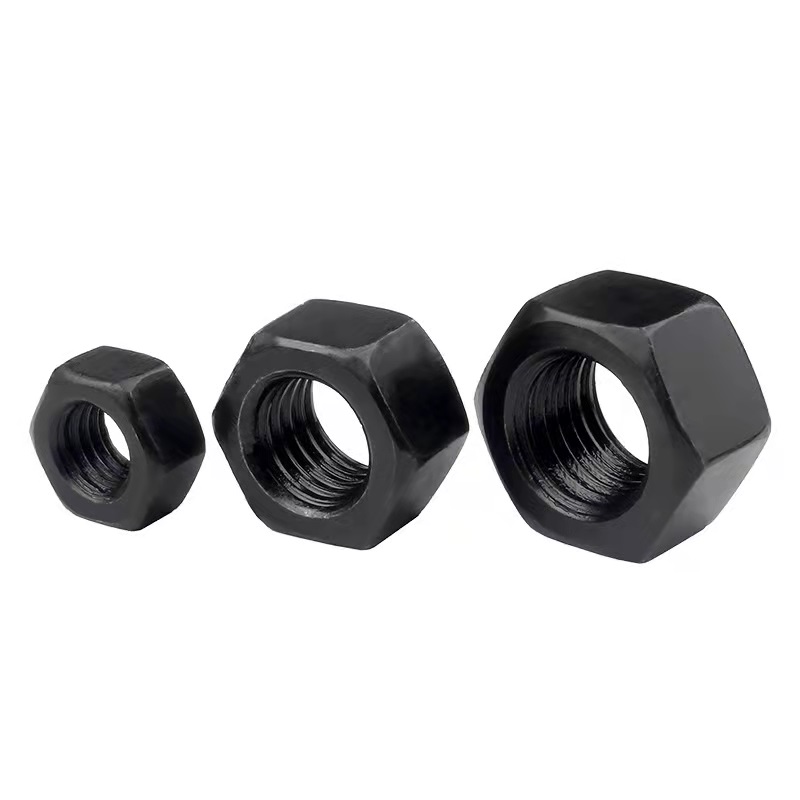Stud Bolt ASTM A193 Grade B8M Manufacturers and Suppliers Overview
Oct . 16, 2024 18:24 Back to list
Stud Bolt ASTM A193 Grade B8M Manufacturers and Suppliers Overview
Understanding Stud Bolts ASTM A193 Gr B8M and Its Manufacturing
Stud bolts are critical components in various industrial applications, particularly in construction and machinery. These fasteners provide vital connections between different parts of mechanical assemblies, ensuring structural integrity and reliability during operation. Among the various grades of stud bolts, ASTM A193 Gr B8M is particularly noteworthy due to its unique properties and applications. This article explores the characteristics of ASTM A193 Gr B8M stud bolts, their manufacturing processes, and their significance in various industries.
What is ASTM A193 Gr B8M?
ASTM A193 is a specification that includes a range of alloy and stainless steel bolting materials for pressure vessels, valves, flanges, and fittings. Gr B8M refers specifically to a grade that comprises stainless steel, particularly those in the austenitic stainless steel class. It is known for its excellent resistance to corrosion and high-temperature strength, making it ideal for use in harsh environments, such as chemical processing plants, oil refineries, and power generation facilities.
The chemical composition of ASTM A193 Gr B8M typically includes a high percentage of chromium and nickel, providing enhanced corrosion resistance compared to other steel grades. This composition makes it particularly effective in environments where resistance to pitting and crevice corrosion is crucial, such as in chloride-containing media.
Manufacturing Process of Stud Bolts
The manufacturing of stud bolts, including ASTM A193 Gr B8M, follows a meticulous process that ensures high quality and performance
. The key stages in the manufacturing process include1. Material Selection The first step involves selecting the appropriate raw materials. For ASTM A193 Gr B8M, manufacturers use high-grade stainless steel that meets the required chemical composition.
2. Forging and Machining The selected materials undergo forging, where heat and pressure are applied to shape them into the desired form. This is followed by machining, where precise dimensions are achieved through processes like turning, threading, and drilling.
stud bolt astm a193 gr b8m factories

3. Heat Treatment To enhance the mechanical properties, especially strength and ductility, the stud bolts often undergo heat treatment. This process involves heating the forged bolts to specific temperatures and then cooling them in controlled environments.
4. Surface Treatment The next step is surface treatment which may include processes like passivation to enhance corrosion resistance. This is crucial, especially for stud bolts that will be utilized in aggressive environments.
5. Quality Control Stringent quality control measures are employed throughout the manufacturing process. This includes testing the material properties, dimensional accuracy, and surface integrity. Various tests such as tensile strength tests, hardness tests, and corrosion resistance tests are conducted to ensure compliance with ASTM standards.
6. Packaging and Shipping Finally, the finished stud bolts are packaged carefully to prevent any damage during transit. Manufacturers often provide detailed documentation, including certificates of compliance and material test reports, to assure customers of the product’s quality.
Applications of ASTM A193 Gr B8M Stud Bolts
Due to their superior mechanical properties and resistance to corrosion, ASTM A193 Gr B8M stud bolts are widely used across several industries. Some of the common applications include
- Chemical Processing In facilities where corrosive substances are handled, B8M stud bolts provide reliable connections in pumps, valves, and piping systems. - Oil and Gas Their durability and resistance to harsh environmental conditions make them ideal for use in oil and gas refineries and offshore platforms. - Power Generation These stud bolts are often used in nuclear and coal-fired power plants, where high temperatures and corrosive environments are prevalent.
Conclusion
In summary, ASTM A193 Gr B8M stud bolts are an essential component in various demanding industrial applications. Their unique properties, combined with a rigorous manufacturing process, ensure that they meet the highest standards of quality and performance. With the increasing emphasis on safety and reliability in industrial operations, the role of high-quality fasteners like ASTM A193 Gr B8M stud bolts will continue to grow, making them indispensable for engineers and manufacturers alike. As industries evolve, the demand for such specialized fasteners is likely to rise, highlighting the importance of understanding their specifications and applications in modern engineering contexts.
Latest news
-
High-Quality Panel Stud Bolt Reliable Panel Stud Bolt Factory & Suppliers
NewsJul.08,2025
-
High-Precision Fine Thread Locknuts Manufacturer & Supplier Custom Solutions
NewsJul.08,2025
-
PH Imperial Stud Bolt – High Strength Fasteners from Leading Supplier & Factory
NewsJul.07,2025
-
High-Quality Allen Wrench Bolts Leading Factory, Company & Suppliers
NewsJul.07,2025
-
Wholesale Ball Stud Bolt - High Quality Supplier & Factory Price Reliable Wholesale Ball Stud Bolt Company
NewsJul.06,2025
-
High-Strength Alloy Bolts Manufacturer & Supplier Quality Alloy Fasteners Factory
NewsJul.06,2025
